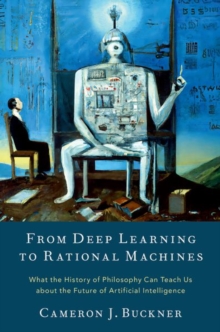Description
| Product ID: | 9780197653302 |
| Product Form: | Hardback |
| Country of Manufacture: | GB |
| Title: | From Deep Learning to Rational Machines |
| Subtitle: | What the History of Philosophy Can Teach Us about the Future of Artificial Intelligence |
| Authors: | Author: Cameron J. Buckner |
| Page Count: | 440 |
| Subjects: | Philosophy of mind, Philosophy of mind, Artificial intelligence, Artificial intelligence |
| Description: | This book explains how recent deep learning breakthroughs realized some of the most ambitious ideas of empiricist philosophers such as Aristotle, Ibn Sina (Avicenna), John Locke, David Hume, William James, and Sophie de Grouchy. It illustrates the utility of this interdisciplinary connection by showing how it can provide benefits to both philosophy and computer science. This book provides a framework for thinking about foundational philosophical questions surrounding the use of deep artificial neural networks ("deep learning") to achieve artificial intelligence. Specifically, it links recent breakthroughs to classic works in empiricist philosophy of mind. In recent assessments of deep learning''s potential, scientists have cited historical figures from the philosophical debate between nativism and empiricism, which concerns the origins of abstract knowledge. These empiricists were faculty psychologists; that is, they argued that the extraction of abstract knowledge from experience involves the active engagement of psychological faculties such as perception, memory, imagination, attention, and empathy. This book explains how recent deep learning breakthroughs realized some of the most ambitious ideas about these faculties from philosophers such as Aristotle, Ibn Sina (Avicenna), John Locke, David Hume, William James, and Sophie de Grouchy. It illustrates the utility of this interdisciplinary connection by showing how it can provide benefits to both philosophy and computer science: computer scientists can continue to mine the history of philosophy for ideas and aspirational targets to hit, and philosophers can see how some of the historical empiricists'' most ambitious speculations can now be realized in specific computational systems. |
| Imprint Name: | Oxford University Press Inc |
| Publisher Name: | Oxford University Press Inc |
| Country of Publication: | GB |
| Publishing Date: | 2024-02-15 |
